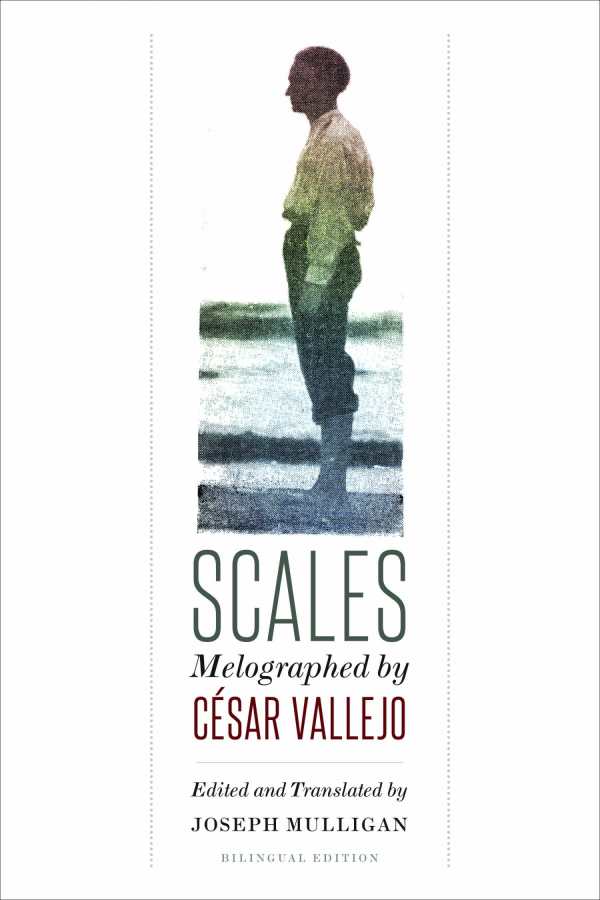Scales
Vallejo has his own unique brand of Latin-American experimentalism with a Kafkaesque flair.
Joseph Mulligan presents an exceptional translation of Latin-American author César Vallejo’s early, prison-inspired work in the story collection Scales.
Vallejo, a Peruvian writer of poetry, stories, and plays, first published Scales in 1923, a few years after his four-month imprisonment for inciting and participating in criminal activities, including looting and arson. Vallejo was able to cast doubt on the impartiality of the proceedings and, with the help of the intellectual community, secured a temporary release and eventually sought refuge in Europe.
The first part of Scales, called “Cuneiforms,” was written from Vallejo’s prison cell and relates immediately to that experience. The remainder of the stories emerge from Vallejo’s unique brand of Latin-American experimentalism, with a Kafkaesque flair that’s especially evident in “The Caynas,” a story which features a character whose entire family believes they are monkeys.
The translated stories run about sixty pages, after which Mulligan provides Vallejo’s original manuscript in Spanish, plus an appendix with photos of the prison where Vallejo was jailed, copies of letters written by Vallejo and on his behalf by others, and a sample of poems from Vallejo’s collection Trilce, published just prior to Scales. These selections—along with Mulligan’s own introduction to the volume— give context to the stories in Scales, and to Vallejo’s oeuvre.
Notable in Vallejo’s work are his neologisms, wordplays that readers of Spanish can appreciate as originally written, but that others can enjoy, courtesy of Mulligan’s translation and explanatory footnotes. For example, Vallejo creates the verb “insaharates” from the noun Sahara: “Thirst fatefully insaharates my throat.” Later, describing a pair of dice, Vallejo writes and Mulligan translates two coinages, “edgility” and “hexagonned”: “There’s no doubt that the dice are made of a specific material, under this weight, with that edgility, hexagonned on this or that untouchable cliff.”
Vallejo’s work is rich in symbolism and surrealism, and even the title (Scalas in Spanish) makes dual reference to both the music of language and the scales of justice. With this first complete English translation, Mulligan brings to light a key work of a lesser-known but significant figure in Latin-American literature.
Reviewed by
Peter Dabbene
Disclosure: This article is not an endorsement, but a review. The publisher of this book provided free copies of the book to have their book reviewed by a professional reviewer. No fee was paid by the publisher for this review. Foreword Reviews only recommends books that we love. Foreword Magazine, Inc. is disclosing this in accordance with the Federal Trade Commission’s 16 CFR, Part 255.

